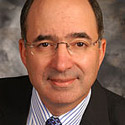10:37 AM
The End Of High Frequency Trading As We Know It?
High frequency traders (HFT) seem to be the evil red-headed step child of today's markets. France has implemented transaction taxes, Germany is pushing for registration, and the European Union is proposing minimum holding times, increasing pre-trade risk requirements, and stiffening market maker liquidity requirements. The EU also wants to impose mandatory kill switches, eliminate broker-crossing networks and ban tiered exchange pricing. The lawmakers proposing these regulations hope to increase market robustness and to pressure high-frequency firms (HFT) to provide either greater liquidity or to leave the markets entirely.
The macro goal of these rules seems to be to slow down the markets, decrease speculation and intermediation, reduce gaming, and curtail short-term equity trading profitability. If these rules are enacted, I'm not sure that we will experience the perfect market that regulators are hoping for.
Do we think technology will slow down? Do we think the use of computers in trading will decrease? Do we think that by lengthening the time an order is in the market it will stop faster firms from having an advantage? Do we think that by mandating a longer time in force for orders bid/offer size will increase? Can we force HFTs to become market makers if it isn't in their best interests? Will a market maker who doesn't want to provide liquidity do so because of regulatory fiat? Do investors want to pay higher commission rates? Or demand expensive capital from banks? Or that banks will suddenly (especially in cash-strapped Europe) open the capital window? Do we think new risk intermediaries will come into the market without reward, especially in an age of regulatory expansion? And do we think that just because we slow down the market, or place artificial market barriers, that gaming will end? Of course not.
So what will happen? If we mandate longer time in force periods, lower cancellation ratios, and higher market maker participation rates, liquidity providers will just widen their spreads to compensate them for the greater risk.
Won't this force real investors to come in and bid? They may, however investors don't quote on both sides of a market. They either buy or sell and not both. So many more quoting investors would be needed to make up for fewer market makers and HFT.
But, will HFTs actually leave? Market makers may leave but high-speed traders probably won't; they will just change their stripes. Liquidity providers will flip to liquidity takers. Given a speed advantage, if it no longer serves a high-speed trader's purpose to provide liquidity, they can just as easily take it. And since market makers and quoting investors are locked into providing liquidity for at least 500 milliseconds, HFTs will be the first to pick off every stale quote. And with a half second quoting mandate, there will be plenty of stale quotes to go around.
So lets combine points. Market makers will leave, spreads will widen, investors will post quotes, but HFTs instead of posting will take quotes. With investors' quotes being frozen, HFTs will just pick off those investors. And once these investors learn this game they will stop posting, and then there will be little incentive for anyone to post quotes as the value of the limit order option grows just as the compensation to the option poster falls.
But won't HFTs run afoul of HFT rules, you ask. Not really, since many of these rules focus on liquidity posting and not liquidity taking. If you take liquidity, there is no need to post or cancel, so cancellation rates decline to zero, and time-in force rules become immaterial.
If all of this comes to pass, spreads will widen, depth will evaporate and there will be fewer places to hide as broker dark pools will face restriction. And the life of the buy-side trader, instead of becoming easier, will become much harder. And who suffers? The people who always suffer: the investors.
As I said in my testimony to the US Senate Committee on Banking, Housing, and Urban Affairs Subcommittee on Securities, Insurance and Investment – "first, do no wrong." We need to be very careful in regulating the markets, as very small changes can have a very significant impact.
Larry Tabb is the founder and CEO of TABB Group, the financial markets' research and strategic advisory firm focused exclusively on capital markets. Founded in 2003 and based on the interview-based research methodology of "first-person knowledge" he developed, TABB Group ... View Full Bio






















